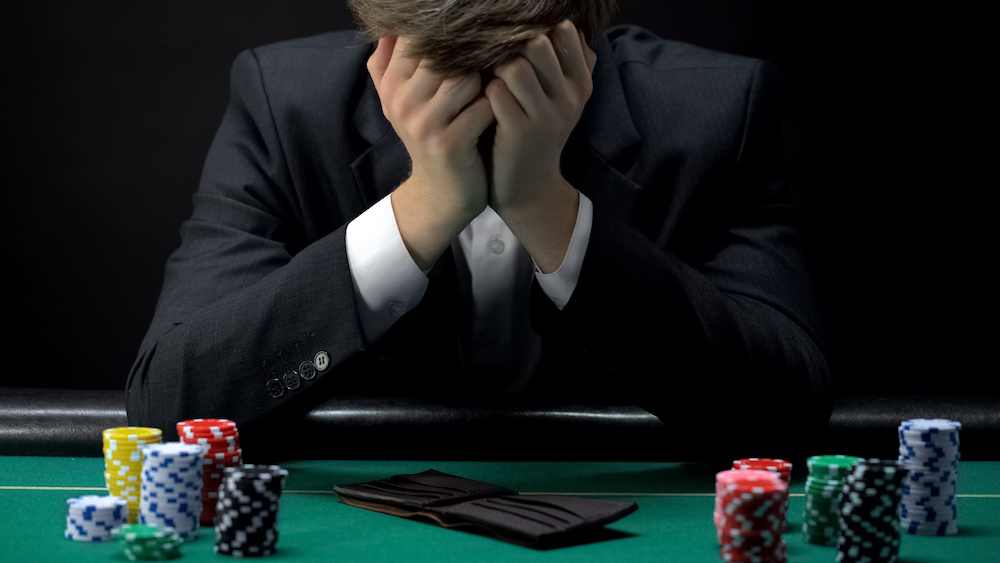Problem gambling behavior that is repeated is known as gambling disorder. The actions cause issues for the person, their families, and society as a whole. Gaming disorders affect both adults and teenagers, and they make it difficult to manage one’s gambling. Even when it results in severe issues, they will keep doing it.
Diagnosis
At least four of the following must have occurred throughout the previous year in order to diagnose a gambling disorder:
- To get the desired thrills, one must gamble more and more money.
- When attempting to limit or stop gambling, you may feel restless or agitated.
- Repeated, fruitless attempts to regulate, curtail, or stop gaming.
- Frequently having gambling fantasies (such as reliving past gambling or planning future gambling).
- When anxious, people frequently turn to gambling.
- Gamblers frequently come back after losing money to make amends. One is said to be “chasing” one’s loses when doing this.
- lying to cover up one’s gambling habits.
- Putting at risk or losing a chance at a job, a school, or an intimate connection due of gambling.
- Relying on others for assistance with financial issues brought about by gambling.
There may be times when a person’s gambling disease symptoms lessen. When less severe symptoms are present, gambling might not seem to be a problem.
Gambling addiction frequently runs in families. Risk factors may include things like trauma and societal inequity, especially for women. Adolescence is the earliest time for symptoms to appear, while later adulthood is the last. Men are more likely to begin when they are younger. Beginning later in life is more common among women.
Treatment
Some people are able to stop gambling by themselves. But a lot of people require assistance to deal with their gambling issues. Among those who have a gambling disorder, only one in 10 seek help.
Different ways that gambling affects people exist. For different people, certain strategies might be more effective. Gambling problems are treated with a variety of therapy modalities, such as cognitive behavioral therapy (CBT), psychodynamic therapy, group therapy, and family therapy.
Counseling can assist persons in comprehending gambling and considering how it impacts them and their families. It can also aid in problem-solving and the consideration of choices.
To treat gambling disorders, there are no drugs that have received FDA approval. Depression and anxiety are examples of co-occurring illnesses that some drugs may help address.
Family and friend support might be essential to a person’s gambling addiction treatment. However, the decision to quit the habits rests solely with the individual.
Counseling can benefit:
- Learn to manage your gambling.
- reconcile family ties.
- Combat the impulse to gamble.
- Deal with challenges and stress.
- Spend your time doing something else.
- Organize your finances.
- Keep recovering and stay away from triggers.
Group therapy and self-help
Peer support is a technique used by support groups like Gamblers Anonymous and Alcoholics Anonymous to assist people in quitting gambling. Physical activity can benefit those with gambling disorders, according to some study. There are numerous states with gambling helplines and other resources. You can reach a national helpline at 1-800-662-HELP (4357).
Techniques for Dealing with Cravings
- Request assistance. Contact a dependable friend or relative. Go to a Gamblers Anonymous meeting.
- Use other tasks to divert your attention.
- Put off your gambling. If you give the urge some time to pass or weaken, it might.
- Take a minute to reflect on the outcomes of your decision to gamble.
- Avoid being alone.
“Dos” and “Don’ts” for friends, family members, and partners
Do
- Attend a self-help group for families like Gam-Anon to connect with people experiencing the same issues and get support from them.
- Recognize the positive traits in your mate.
- When speaking with the person who has a gambling disorder, be composed.
- Inform them that you are looking for assistance for yourself since gambling is impacting you (and possibly children).
- Tell kids about gambling addiction.
- Recognize the necessity for and potential length of time for problem gambling treatment.
- Set limits for how you handle money, manage your family’s finances, and go over your credit card and bank statements.
Don’t
- Preach, lecture, or allow yourself to lose control of your anger
- Exclude the gambler from family life and activities
- Expect immediate recovery, or that all problems will be resolved when the gambling stops
- Bailout the gambler
References
Diagnostic and Statistical Manual of Mental Disorders, Fifth Edition. (DSM-5) American Psychiatric Association. American Psychiatric Association Publishing. 2013.
Gabbard’s Treatment of Psychiatric Disorders, Fifth Edition Edited by Glen O. Gabbard, M.D. American Psychiatric Publishing. 2014.
Note: In the DSM-5, gambling disorder has been placed in a new category on behavioral addictions. This reflects research findings showing that gambling disorder is similar to substance-related disorders in clinical expression, brain origin, comorbidity, physiology and treatment.




